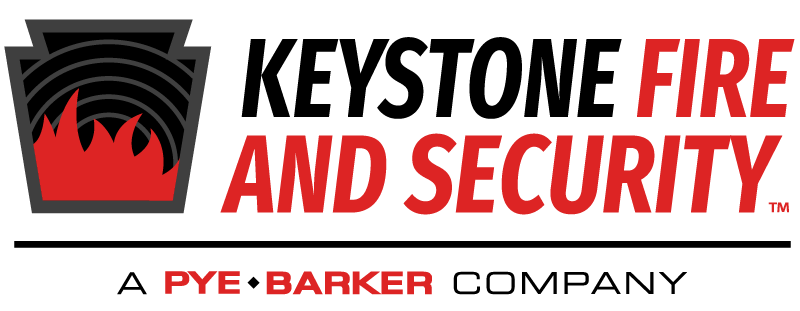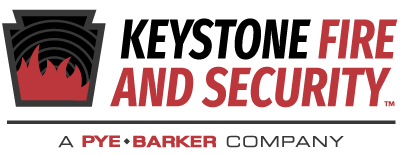Fire suppression systems are crucial to preventing a fire from getting out of control and causing costly damage to your building. More importantly, a fire suppression system can prevent injury or even death of residents or employees by giving them precious time to leave the building after a fire has been detected. Fire suppression systems consist of several fire protection components including detectors, alarms, and suppression agents. Fire suppression systems are required when fire sprinkler systems are not appropriate. Fire sprinklers use water as the suppression agent. Other suppression agents such as clean agents, dry chemicals and carbon dioxide are better to use in suppression systems when water may harm the property or materials stored on the property. Keep reading to understand what a fire suppression system is and how Marco Protection Systems LLC can help with your fire suppression systems installation.
What Types of Buildings Require Fire Suppression Systems?
Fire suppression systems should be used in buildings where a sprinkler system would be harmful or not effective. Buildings like industrial plants storing hazardous chemicals should use a suppression system because chemicals need more effective extinguishers than water and immediate action. Kitchens should have suppression systems because of the high quantity of grease that makes water a potentially dangerous liquid to use as a suppression agent. Other buildings with sensitive equipment like data centers should use fire suppression systems. A sprinkler system would do just as much harm to these properties as a fire would.
What are the Different Types of Fire Suppression Systems?
There are different kinds of fire suppression systems that rely on different suppressive agents to extinguish fires. The fire suppression system installation you choose depends on your property and the specific fire risks you face. Marco Protection Systems LLC offers the following fire suppression systems and will make sure to design and install the system that is most effective and provides the most safety for your property.
Clean Agent Fire Suppression Systems:
Clean Agent Fire Suppression Systems use chemical agents that are environmentally friendly. They are odorless, colorless and not electrically conductive. They leave no residue so when discharged, they are easy to clean. Clean agents work to extinguish fires by absorbing heat and interrupting combustion.
Dry Chemical Fire Suppression Systems:
Many industrial properties harbor hazardous materials used for industrial processes like quenching, painting, chemical storage, etc. These properties require more complex and sophisticated fire suppression systems that may involve multiple tanks and early warning alarms. Dry chemical fire suppression systems can keep your industrial property safe.
Carbon Dioxide Fire Suppression Systems:
Carbon dioxide works to extinguish fires by reducing oxygen to the point that the combustion process is not possible. It is a naturally occurring gas that leaves no residue and can effectively put out Class A, B, and C fires.
Restaurant Fire Suppression Systems:
Restaurants and commercial kitchens are uniquely at risk for fire due to high heat, grease, and open flame. For kitchens, it is best to have an automatic fire suppression system installed so little time is wasted when warning signs are detected. Wet chemicals are used in restaurant fire suppression systems and are the most rigorous fire extinguishing agents for the special needs of kitchens.
How much does a Fire Suppression System Cost?
The cost of your fire suppression systems installation will completely depend on the type of fire suppression system you choose. Factored into the cost will also be design, parts, and labor. When you contact Marco for a fire suppression system, a Life Safety Advisor will come to your site, often with a project manager, to determine your needs and develop a proposal. Marco Protection Systems LLC will help navigate which fire suppression system is right for your property based on the size and layout of the building and what kind of equipment or materials are kept in it. Once the proposal is accepted, the project will be scheduled and technicians will be dispatched to your site to begin the installation. The Life Safety Advisor dedicated to your business may also offer options to later inspect and maintain the system Marco installed. This is beneficial in that you will have technicians already familiar with the exact system ensuring it passes regular inspection.
How does a Fire Suppression System Work?
A fire suppression system works to extinguish fires through the application of a substance that eliminates either the oxygen or the temperature that fires need to survive. Fire suppression systems do this through the operation of a group of engineered components that first detect fires at the very beginning stages. They do this, most commonly, through rising temperatures or smoke. Once a warning signal has been detected, the fire suppression system will trigger an alarm to alert you to the presence of a potential fire. This helps you, your employees or residents have time to evacuate safely and take action to extinguish the fire. In addition to initiating an alarm, some fire suppression systems should also automatically release a substance to extinguish the fire while some need to be manually triggered.
Contact Marco Protection Systems LLC today with your fire suppression systems installation questions!

